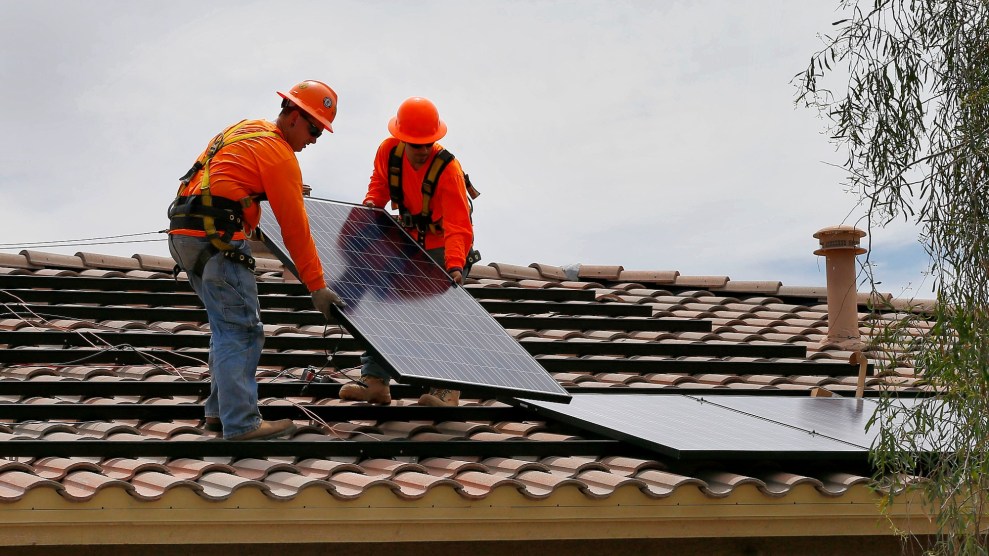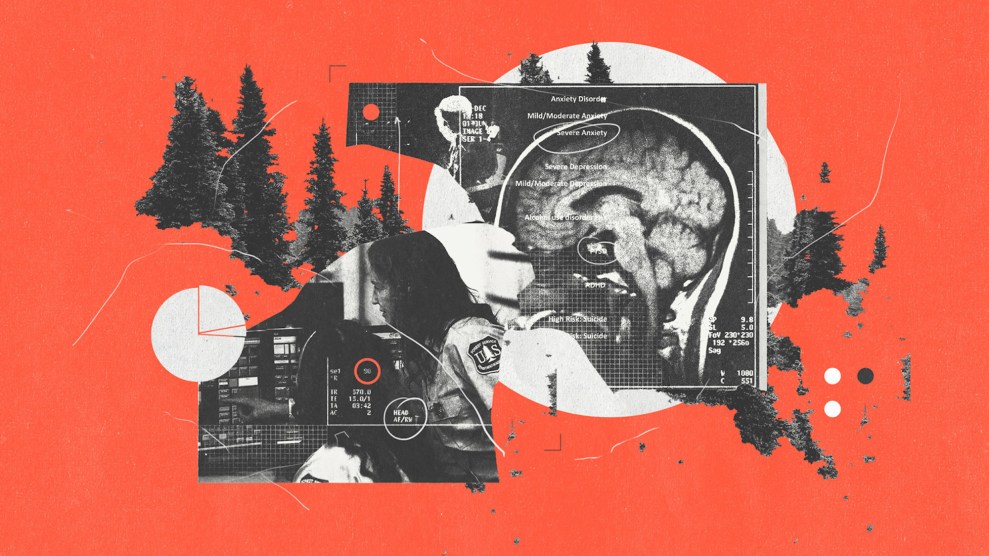Thin Artic ice: “Impacts of a Warming Arctic,” Susan Joy Hassol, Cambridge University Press, 2004 http://www.finfacts.com/biz10/ArcticImpactsExecSummary.pdf
Ocean Conveyer: “Abrupt Climate Change: Should We Be Worried?” Woods Hole Oceanographic Institute, 1/27/03
http://www.whoi.edu/institutes/occi/currenttopics/climatechange_wef.html
“The Heat Before the Cold,” Terence Joyce (WHOI), 4/12/02
http://www.whoi.edu/institutes/occi/currenttopics/abruptclimate_joyce_oped.html
“Arctic Rivers Discharge More Freshwater Into Ocean,
Reflecting Changes to Hydrologic Cycle Caused by Warming,” American Geophysical Union, 1/19/05 http://www.agu.org/sci_soc/prrl/prrl0502.html
Arctic ice shelf: “Largest Ice Shelf Breaks Up, Draining Freshwater Lake,” American Geophysical Union, 9/22/03 http://www.agu.org/sci_soc/prrl/prrl0326.html
Alpine meadows: “Climate Change Impacts on the United States: The Potential Consequences of
Climate Variability and Change,” National Assessment Synthesis Team, 2000.
Shishmaref vote:“Alaska, No Longer So Frigid, Starts to Crack, Burn and Sag,” Timothy Egan,
New York Times, 6/16/02
“Shishmaref residents vote to move village,” Associated Press, 7/21/02
Robins in Canada: “Sachs Harbour Observations on Climate Change,” International Institute for
Sustainable Development. http://www.iisd.org/climate/arctic/sachs_harbour.asp
“Rumbles from the Arctic: Strange northern thunder is a sign of global warming’s effect,” Global Interactive, 11/15/00 http://www.climateark.org/articles/2000/4th/rufrthea.htm
“First ice-free North Pole in 50m years,” Anthony Browne, The Observer, 8/20/00
Scottish species: “Scots species face exile to survive,” Karin Goodwin,
Skinny polar bears: “Vanishing Kingdom: The Melting Realm of the Polar Bear,” World Wildlife Federation.
Caribou dung: “Global warming unveils archeological bounty,” Usha Lee McFarling, Los Angeles Times, 1/17/03
“Ancient sencrest on ice,” yourYukon, http://www.taiga.net/yourYukon/col198.html
Northwest Passage patrol: “The New Cold War,” Daniel Howden and Ben Holst, The Sunday Tribune, 1/9/05.
Spanish butterflies: “Butterflies react to global warming,” Peter Svensson, Associated Press, 6/10/99.
Longer growing season: “Earth is becoming a greener greenhouse,” American Geophysical Union press release, 9/4/01 http://www.agu.org/sci_soc/prrl/prrl0124.html
Thawing permafrost: “Even in the High Arctic, nothing is permanent,” Erica Goldman, Science, 8/30/02.
“Polar Thaw: Global Warming in the Arctic and Antarctic,” Natural Resources Defense Council http://www.nrdc.org/globalwarming/polar/polar12.asp
“The Regional Impacts of Climate Change,” Intergovernmental Panel on Climate Change http://www.grida.no/climate/ipcc/regional/043.htm
“Observed Impacts of global climate change in the U.S.” Camille Parmesan and Hector Galbraith, Pew Center on Global Climate Change, 11/04
Alaskan oil exploration: “Alaska Thaws, Complicating the Hunt for Oil,” Andrew C. Revkin, New York Times`, 1/13/04
Glacier National Park: “Global warming threatens ecosystems,” National Parks Conservation Association http://www.npca.org/across_the_nation/visitor_experience/code_red/additional_impacts.asp
West Nile Virus: “West Nile Virus Map – September 2004,” National Wildlife Health Center http://www.nwhc.usgs.gov/research/west_nile/wnv_map.html
German Olympics: “Where snow is a no-show,” Erik Kirschbaum, Geelong Advertiser, 2/18/05.
Collapsing Caucasus glacier: “Glacial melting takes human toll,” Usha Lee McFarling, Los Angeles Times, 9/25/02.
Satellite drag: “Increasing greenhouse gases lead to dramatic thinning of the upper atmosphere,” American Geophysical Union, 2/2/04 http://www.agu.org/sci_soc/prrl/prrl0406.html
Napa grapes: “Emissions pathways, climate change and impacts on California,” Proceedings of the National Academy of Sciences of the United States of America, 8/16/04 http://www.pnas.org/cgi/content/abstract/101/34/12422?view=abstract
Ski lobby: Letter to Senators McCain and Lieberman, Sustainable Slopes, 2/23/05.
Canadian golf and skating: “Ice a scarce commodity on Arctic rinks: Global warming blamed for shortened hockey season,” Les Perreaux, National Post, 1/7/03.
“Warming Winds, Rising Tides: Arctic,” World View of Global Warming http://www.worldviewofglobalwarming.org/pages/rising-seas,html
European heat wave: “Record Heat Wave in Europe Takes 35,000 Lives,” Earth Policy Institute, 10/9/03 http://www.earth-policy.org/Updates/Update29_data.htm
Mt. Everest: “Impact of global warming on mountain areas confirmed by UNEP-backed mountaineers,” United Nations Environment Programme, 6/5/02 http://www.grida.no/inf/news/news02/news41.htm
Giant Australian jellyfish: “Feeling the Sting,” Betsy Carpenter, U.S. News & World Report, 8/16-23/04.
“The blobs of summer: Ewwwwww!” Lily Whiteman, OnEarth, 6/22/02.
African storks: “Poland’s late spring is confusing storks,” Reuters, 5/1/97.
World droughts: “Drought’s Growing Reach: NCAR Study Points to Global Warming as Key Factor,” The Center for Atmospheric Research & the UCAR Office of Programs, 1/10/05 www.ucar.edu/news/releases/2005/drought_research.shtml
Danube warships: “Europe feels the heat,” Lisa Bryant and Gareth Harding, United Press International, 8/5/03.
Khasi Hills water trucking: “World’s wettest area dries up,” Subir Bhaumik, BBC News, 4/28/03. http://news.bbc.co.uk/1/hi/world/south_asia/2977169.stm
Ocean salinity: “New study reports large-scale salinity changes in the oceans,” Woods Hole Oceanographic Institute, 12/17/03
http://www.whoi.edu/institutes/occi/currenttopics/abruptclimate_rcurry_pr.html
“Scientists find dramatic changes in Southern Ocean, fear climate link,” Yahoo News, 2/17/05 http://news.yahoo.com/news?tmpl=story&cid=1512&u=/afp/climateantarcticoceanaustralia&printer=1
Coastal cities and rain: “Coastal cities turn up the heat on rainfall,” American Geophysical Union, 5/27/03 http://www.agu.org/sci_soc/prrl/prrl0314.html
High temperature days: “An Abrupt Climate Change Scenario and its Implications for United States National Security,” Peter Schwartz and Doug Randall, 10/03 http://www.gruene-partei.de/cms/wp-content/uploads/dokbin/35/35348.pentagon_zum_klimawandel.pdf
Shrinking Lake Chad: “Africa’s Lake Chad shrinks by 20 times due to irrigation demands, climate change,” Goddard Space Center press release, 2/27/01 http://www.gsfc.nasa.gov/ftp/pub/pao/releases/2001/01-17.htm
Extreme weather in Southeast Asia: “Health impacts of climate extremes,” World Health Organization http://www.who.int/globalchange/climate/summary/en/index4.html
Tuvala pleads with Australia and New Zealand: “Farewell Tuvalu,” Andrew Simms, The Guardian, 10/29/01.
Amphibian decline: “Amphibians hopping into extinction; Study flags accelerated global decline in diversity of frogs, salamanders, newts, caecilians,” Carolyn Y. Johnson, Boston Globe, 10/16/04
“Status and trends of amphibian declines and extinctions worldwide,” Simon N. Stuart, Janice S. Chanson et al., Science, 12/3/04.
“Supporting online material for ‘Status and trends of amphibian declines and extinctions worldwide.’”
“Worldwide report says amphibians are in peril; ecological stresses may be taking toll,” Juliet Eilperin, Washington Post, 10/15/04.
Amazon ablaze: “Amazon Burning Makes Brazil a Leading Polluter,” Reuters, 7/19/04. “Earth’s ‘lung,’ the Amazon forest, breathes uneasily in a time of climate change,” Associated Press, 2/11/05.
Ocean temperatures, storm winds: “Calming the storm,” Florida Today, 9/25/04.
South Atlantic hurricane: “Experts: Tropical storm that battered southern Brazil should serve as wake-up call,” Associated Press, 3/30/04.
Kilimanjaro snows: “Ice caps in Africa, tropical South America likely to disappear within 15 years,” Ohio State University press release http://researchnews.osu.edu/archive/glacgone.htm
Andean malaria: “Tropical diseases are spreading as the world’s climate changes,” Fred Pearce, New Scientist, 4/18/98.
Suddenly, Ebola: “Trigger Events: Enviroclimatic coupling of Ebola hemorrhagic fever outbreaks,” The American Journal of Tropical Medicine and Hygiene, 4/24/04 www.ajtmh.org/cgi/content/abstract/71/5/664
Malaria, dengue fever and diarrhea: “The World Health Report 2002: Reducing Risks, Promoting Healthy Life,” World Health Organization, 2002.
Maldivian wall: “Maldives: Paradise soon to be lost,” Nick Bryant, BBC News, 7/24/04 http://news.bbc.co.uk/1/hi/world/south_asia/3930765.stm,
Great reef bleaching: “Scientists discover warning signs of coral bleaching on Great Barrier Reef,” Associated Press, 12/14/04.
Bolivian ski slope: “Glaciers shrinking in a warming world,” CNN.com, 2/7/05.
Extreme ninos: Climate Change 2001: Impacts, Adaptation and Vulnerability, Chapter 8: Insurance and other financial services, James J. McCarthy, ed.
“Status of coral reefs of the world: 2004. Volume 1.” Global Reef Monitoring Network http://www.reefbase.org/References/ref_literature_detail.asp?refID=23038
http://www.reefbase.org/
Swiss Re’s bottom line: “Weather warning on insurance,” Patrick Cockburn, The Financial Times, 2/21/90
Canberra kangas: “Protests as cull of kangaroos goes ahead in Australian capital,” Agence France Presse, 7/16/04 http://www.keepmedia.com/ShowItemDetails.do?item_id=508282&oliID255&bemID=RslACp5NCUJTHWIIiH5Rggaa8243
“Australia on angry kangaroo alert,” BBC News, 7/7/04 http://news.bbc.co.uk/1/hi/world/asia-pacific/3874379.stm
Glacial New Zealand: “New Zealand glacier responses to climate change of the past century,” T.J. Chinn, New Zealand Journal of Geology and Geophysics 39, 415-428 (1996) http://www.rsnz.org/publish/nzjgg/1996/128.php
Longer days: “Global warming lengthens the day,” American Geophysical Union press release, 2/11/02 http://www.agu.org/sci_soc/prrl/prrl0206.html
Heard Island: “Miracle of new life on remote Heard Island,” Don Woolford, AAP Newsfeed, 3/29/01
“Remote subantarctic island experiences population boom,” Australian Antarctic Division, 3/28/01 http://www.aad.gov.au/default.asp?casid=1801
Torgensen Island: “Polar Thaw: Global warming in the Arctic and Antarctic,” Natural Resources Defense Council www.nrdc.org/globalwarming/polar/polar5.asp
“Climate change effects in the Western Antarctic Peninsula Region,” testimony of Dr. William R. Fraser, 5/6/04 www.commerce.senate.gov/pdf/fraser050604.doc
Antarctic ice break up: “Antarctic glaciers surge when ice shelves collapse,” American Geophysical Union and NASA Jet Propulsion Laboratory National Snow and Ice Data Center joint press release, 9/21/04 http://www.agu.org/sci_soc/prrl/prrl0433.html
“Larsen B ice shelf collapses in Antarctica,” National Snow and Ice Data Center, 3/18/02 http://nsidc.org/iceshelves/larsenb2002/












